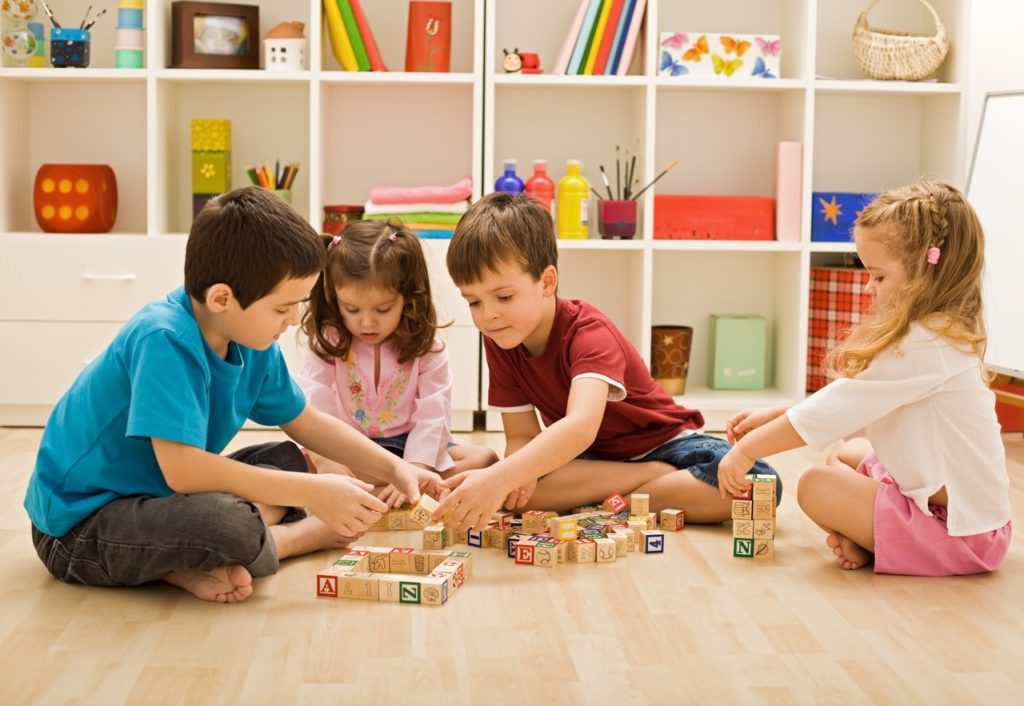Why track developmental milestones?
Every child grows and develops at their own pace. As a parent, it can be tough to remember not to compare your child to the children of relatives and friends. One child may begin speaking early on, while another may take longer. It is important to remember that developmental milestones are achieved within a range of months. If your child develops a skill at the late end of a range, it is in no way a predictor of their intelligence, talents or future successes.
The differences among children with regard to development—even when they’re all within the normal range—can seem drastic. This is why developmental milestones are an important metric for tracking your child’s progress and determining whether intervention is needed. Identifying and treating delays early in the process will help set your child on the right path and avoid larger issues down the road.
There are a several major speech and language milestones to look out for as your child develops. However, if you have concerns about your child’s speech and language development, reaching out to a professional early is always better than the “wait and see” approach.
Recently the CDC changed its recommendations for tracking milestones. We developed a guide to help you understand the controversy around why the CDC updated milestones, a breakdown of changes that were made, and takeaways for parents on how to interpret the milestones.
The brain of a preschool age has incredible potential for change. It is malleable in ways that older brains are not. In particular, the speech and language centers of the brain grow and change rapidly in the preschool and early elementary-school years.
As speech-language pathologists, we know that the earlier we can start treatment for children who need services, the faster and more effective that treatment will be.
Research tells us that therapy provided in a child’s natural environment is ideal. Learn about the benefits of at-home speech therapy.

Signs Your Child May Benefit from a Speech and Language Evaluation
You may wish to consider scheduling a speech and language evaluation for your child if any of the following apply:
Preschool Years
- Your child does not seem to enjoy social interaction.
- Your child rarely initiates speech but instead echoes or repeats words during communication.
- Your child has difficulty following simple directions.
- Your child’s answer to simple questions are either “off topic” or do not seem to make sense.
Elementary School Years
- Your child has difficulty understanding spoken language.
- Many or most listeners have difficulty understanding your child.
- Your child pronounces words incorrectly.
- Your child has difficulty understanding jokes or sarcasm.
- Your child does not enjoy play or social interaction more generally.
- Your child has difficulty telling or retelling a story.

Speech Sound Acquisition
Listed below are the speech sounds and typical age ranges of acquisition. If you child does not acquire the specified sound by the end of the given age range, you may wish to consider a speech evaluation for your child.
Learn More about what articulation speech therapy is.
Developmental Milestones
For your reference, here is a list of general developmental milestones from birth to elementary school:
Birth to 6 months:
- Smiles and recognizes your voice
- Babbles and uses a variety of sounds
- Laughs
- Follows sounds with their eyes
6 to 12 months:
- Has one to two words by first birthday
- Imitates speech sounds
- Responds to requests
- Enjoys social games like peek-a-boo and pat-a-cake
Read more on Speech and Language Milestones – Birth to 12 months
1 to 2 years:
- Uses many different sounds in their words
- Can point to a picture in a book when asked
- Begins to combine words (i.e. more cookie)
- Has 200+ words by age 2
Read more on 2-Year-Old Speech and Language Milestones
3 to 4 years:
- Answers simple who, what, where, when, and why questions
- Can tell simple stories
- Speech is understandable by most listeners
- Asks questions and asks for clarification if they don’t understand the answer
4 to 5 years:
- Enjoys pretend play
- Answers more complex how and why questions with logical answers
- Tells stories and stays on topic
- Can take turns in conversation
Elementary school:
- Understands jokes and sarcasm
- Sounds out new words and hears subtle differences among sounds
- Can follow more complex directions
- Can describe what others may be thinking or feeling
Additional Resources
Here are some of our favorite articles and websites on the topics of developmental milestones, early intervention, and speech and language development generally:
- From Birth, Engage Your Child with Talk by Jane Brody, New York Times, 2009
- Diane Bahr’s books and articles are fantastic resources on the prevention of developmental delays as well as practical everyday tips: https://www.agesandstages.net
- The American Speech Language Hearing Association: https://www.asha.org
- Early Identification of Speech, Language and Hearing Issues
- Please also check out our TherapyWorks Blog
If you are concerned about your child’s developmental milestones, please reach out. We would be happy to speak with you to discuss your concerns.




